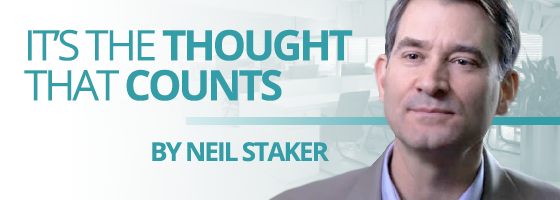Santa came in 1973. That was no miracle—he came like clockwork every Christmas. What made this year remarkable was the gift he brought me, and how my parents wouldn’t let me have it.
In my stocking, sitting beside the common toys and the treats, there was a note written in grand, sweeping calligraphy. It said:
Dear Neil,
I’ve noticed what a nice boy and good helper you are. I want you to come to the North Pole with me and be one of my elves. Ask your Mom and Dad for permission.
Merry Christmas,
Santa Claus
Wow! THE Santa Claus was asking ME to come to THE North Pole with him.
I wondered if he would land his sleigh on the roof, where all the awe-struck neighbors could watch me board, my chest proudly thrusting skyward, before I was whisked away to the Arctic. Or perhaps he would bring the reindeer down on the front lawn—that would give them a chance to graze, and leave more room for the crowds of people to gather around and celebrate my unprecedented accomplishment.
It truly was a miracle. Not one of those bogus miracles, like a beautiful sunset or the smile of a young child. This was the real deal.
I threw the rest of my stocking aside, clenched the note in my triumphantly raised hand, and ran laps around the room yelling, “I’M GOING TO BE AN ELF! I’M GOING TO BE AN ELF!!!”
Ten minutes of shouting and sprinting calmed me down a bit, and I took the sacred note before my mother. “Mom, can I go to the North Pole and be an elf?” I asked.
“No,” the cold voice of reality rolled down from on high, “You have to stay here and go to school.”
School? School!?! Was she crazy? I whined, and cried, and begged, but it was no use. My parents would not budge. The miracle of 1973 ended just as unfathomably as it began.
Years passed, my heart healed, and eventually I grew older with children of my own. As I remembered the hope-dashing note in my stocking, I went before my mother as an adult with a different question: “What were you thinking?”
“I thought you would think it was nice,” the household calligraphist responded. “I thought it would make you feel good, but I didn’t think you would actually want to go away and leave your family.”
School and family versus Santa Claus, the North Pole, and toys? She had made an assumption about my six-year-old wants and values, and couldn’t have been more mistaken. We risk making the same mistake when we assume what others value.
Managers may begin an employee of the month program only to find it’s counterproductive—the selected employees would have performed well anyway, they feel embarrassed by the formal recognition, and all the unselected employees feel unappreciated. Companies may lose thousands in misguided incentives when all most people wanted was a little recognition and sincere appreciation.
When we want to motivate an individual or create a plan to influence a group, we should be wary of assuming we know what others value. As hard as it is to understand in the moment, others aren’t wired like us. My favorite way of pointing this out in workshops is to ask how many people are motivated by a contest. Typically, about a third of the hands go up. Then I ask how many find contests demotivating. Guess what? About a third of the hands go up. It’s a powerful visualization.
Our big mistake is assuming that what works for us, works for others. Pause and take time to find out what others want and why they want it. Maybe they’re motivated by autonomy and freedom or perhaps they value a good challenge and the chance to create something new. Others might find connecting with a leader or a customer just the thing to create enthusiasm. You won’t really know until you ask. And when it comes to gifts and influence, it’s the thought that really counts.
ABOUT NEIL STAKER
Neil Staker is the president and founder of Collaborant. He has a Masters of Organizational Behavior degree from BYU and a quarter of a century of experience in organizational development. Neil is known for his clear, approachable, and interactive speaking style. He has taught communication skills to thousands of people including leaders from American Express, Symantec, Cerner, UMB Financial, and Monsanto.
